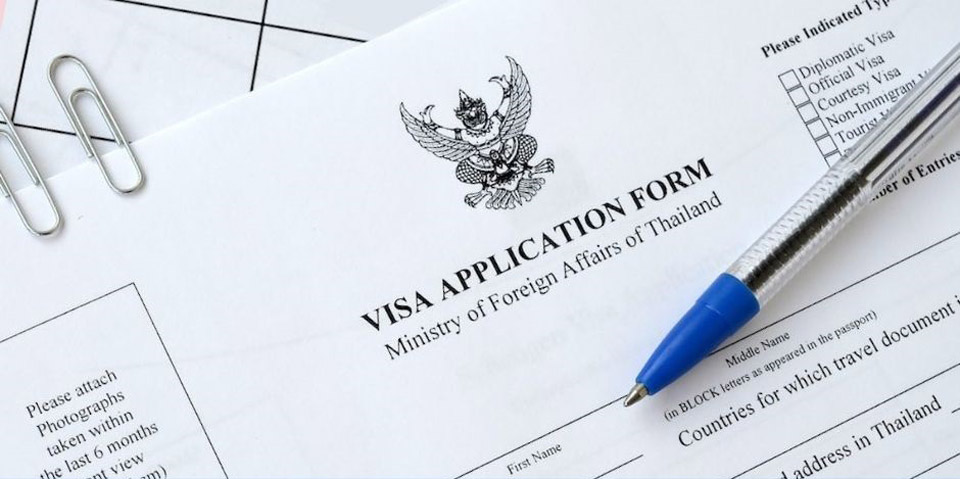The Thailand Long-Term Resident Visa is a visa classification created by the Thai government through a Cabinet resolution in 2022 to promote Thailand as a competitive destination for global talent, investors, and retirees. Unlike traditional Thai visas—such as the Non-Immigrant B (Business) or O-A (Retirement) visas—the LTR Visa is designed as a comprehensive legal framework offering long-duration stay, streamlined work authorization, family inclusion, and fiscal benefits for qualifying foreign nationals.
Rather than being an immigration tool for general use, the LTR Visa reflects a targeted policy approach: Thailand’s government actively seeks specific types of foreign residents—those who bring economic assets, highly specialized knowledge, or stable international income—and provides them with distinct legal and administrative advantages.
II. Legal Authority and Administrative Mechanism
A. Legal Basis
The LTR Visa is rooted in the Immigration Act B.E. 2522 (1979) but gains its enhanced privileges through a Cabinet-level policy directive, which allows implementing agencies to grant exemptions to general immigration and labor requirements.
B. Implementing Agencies
-
Thailand Board of Investment (BOI): Responsible for pre-screening, certifying eligibility, issuing work permits for qualifying professionals, and liaising with investment-related regulatory frameworks.
-
Immigration Bureau: Grants the visa itself, handles address reporting and re-entry procedures.
-
One Stop Service Center (OSSVC): Centralized authority for processing LTR applications, family visas, visa extensions, and digital work permits.
III. Structural Characteristics of the Visa
| Feature | Details |
|---|---|
| Validity | 10 years (initially issued as two 5-year terms) |
| Type | Multiple-entry |
| Re-entry Permits | Not required |
| Reporting Obligation | Annual (not every 90 days) |
| Renewal Condition | Reassessment of eligibility at 5-year point |
This legal stability makes the LTR Visa particularly attractive compared to standard visas that require annual renewals or local sponsorships.
IV. Categories of Eligibility and Strategic Intent
The LTR Visa is available only to those who qualify under one of four categories. Each is designed to serve a specific economic or social purpose:
1. Wealthy Global Citizens
-
Asset Threshold: USD 1 million in global net worth.
-
Income Threshold: USD 80,000 per year (past 2 years).
-
Investment Requirement: USD 500,000 in Thai assets (property, equity, or bonds).
Policy Goal: Capital inflow into domestic financial markets and long-term property holding sectors.
2. Wealthy Pensioners
-
Age: 50 years or older.
-
Income: USD 80,000/year or USD 40,000/year with an additional USD 250,000 invested in Thai assets.
Policy Goal: Promote consumption-driven residency from financially independent retirees without dependency on Thai welfare systems.
3. Work-from-Thailand Professionals
-
Employer: A foreign firm with annual revenue ≥ USD 150 million.
-
Income: USD 80,000+ per year.
-
Experience: Minimum of 5 years.
-
Work Model: Fully remote (foreign employer, non-Thai client base).
Policy Goal: Facilitate the global remote workforce without impacting domestic employment.
4. Highly Skilled Professionals
-
Income: USD 80,000+ (or USD 40,000 with master’s or PhD).
-
Sector: Thailand 4.0-aligned industries (e.g., robotics, AI, renewable energy).
-
Employer: Thai or foreign company registered and operating in Thailand under BOI or public sector.
Policy Goal: Enhance innovation capacity and industrial productivity through inbound intellectual capital.
V. Employment Authorization via BOI Digital Work Permit
For individuals under categories 3 and 4, the LTR Visa allows legal employment through a BOI-issued digital work permit.
Distinctive Features:
-
Quota Exemption: No requirement for 4 Thai employees per 1 foreigner.
-
Digital Format: Fully electronic—no physical work booklet needed.
-
Duration: Valid for up to 5 years; renewable.
-
Employer Conditions: Employer must be in a BOI-approved sector or be a recognized government partner.
This digital permit bypasses the Ministry of Labour and removes bureaucratic steps typically required for foreign employment.
VI. Taxation: Benefits and Liabilities
Thailand’s territorial taxation system provides unique planning opportunities for LTR Visa holders. The LTR framework enhances these through preferential treatment.
1. Flat Personal Income Tax (PIT) – 17%
-
Applies to: Highly Skilled Professionals only.
-
Conditions: Must be BOI-approved employee; applies only to Thai-sourced income.
-
Legal Basis: Joint directive between BOI and the Revenue Department.
This is significantly below the normal progressive tax scale of 5–35%.
2. Exemption for Foreign-Sourced Income
-
Section 41 of the Revenue Code provides that foreign-earned income is not taxed if not remitted into Thailand within the same calendar year.
-
This applies broadly to:
-
Remote professionals.
-
Pensioners.
-
Foreign investors maintaining offshore accounts.
-
3. Filing Obligations
-
If present in Thailand ≥183 days in a year, the individual becomes a tax resident.
-
Annual tax return is required, even if only exempt income is held offshore.
VII. Property and Investment Privileges
LTR Visa holders may legally engage in the following property and investment activities:
-
Condominium Ownership: Within the 49% foreign quota per development.
-
Long-term Lease: Land and homes may be leased for up to 30 years (with possible renewal).
-
Permitted Investments:
-
Thai government bonds.
-
Equity in public or private Thai companies.
-
BOI-promoted projects and venture capital opportunities.
-
Important: LTR holders cannot own land, as restrictions under the Land Code remain in force.
VIII. Family Rights and Dependent Inclusion
LTR Visa holders may sponsor up to four dependents, including:
-
Legally married spouses.
-
Children under the age of 20.
Dependent Benefits:
-
Same 10-year visa duration.
-
No additional visa categories needed.
-
Spouses may work with separate digital permits if eligible.
-
Children can attend local or international schools.
Dependents are processed under a unified application via the OSSVC, avoiding the need for piecemeal visa filings.
IX. Immigration and Travel Privileges
-
Airport Fast Track: Priority immigration lanes at major airports.
-
No re-entry permit needed, even for extended absences.
-
Centralized extensions and compliance via OSSVC.
-
Airport concierge services (Elite Personal Assistant) available for an additional fee.
X. Compliance Requirements and Revocation Risk
Maintaining Eligibility:
-
Continued employment, investment, or income threshold compliance.
-
Annual health insurance (or Thai Social Security enrollment).
-
Yearly address report to Immigration Bureau.
-
Filing Thai tax returns, if resident.
Grounds for Revocation:
-
Loss of eligibility (e.g., job loss or divestment).
-
Submission of false or misleading documents.
-
Criminal conviction or regulatory violation.
-
Immigration, labor, or tax law breach.
XI. Use Cases
Case 1: American Software Engineer (Category 3)
-
Works remotely for a U.S. tech firm, earning USD 130,000.
-
Resides in Thailand without Thai employer.
-
Income held offshore → not taxable in Thailand.
Case 2: German Retiree (Category 2)
-
Age 70, with EUR 60,000 pension.
-
Invested USD 300,000 in Thai property.
-
Gains 10-year visa without needing O-A extensions or 800,000 THB deposit.
Case 3: Japanese Engineer in Robotics (Category 4)
-
Employed by BOI-endorsed Thai firm in automation.
-
Pays flat 17% tax on income.
-
Includes spouse and two children under one visa system.
XII. Conclusion
The LTR Visa Thailand is a strategically engineered immigration mechanism that offers long-term, rule-based benefits in exchange for transparent contributions—whether financial, intellectual, or demographic. It allows qualified foreign nationals to integrate into Thai society with legal clarity, operational ease, and financial predictability.
More than a visa, the LTR is a residency platform anchored in national development policy, suited for individuals who meet clearly defined thresholds and wish to contribute to Thailand’s future.


